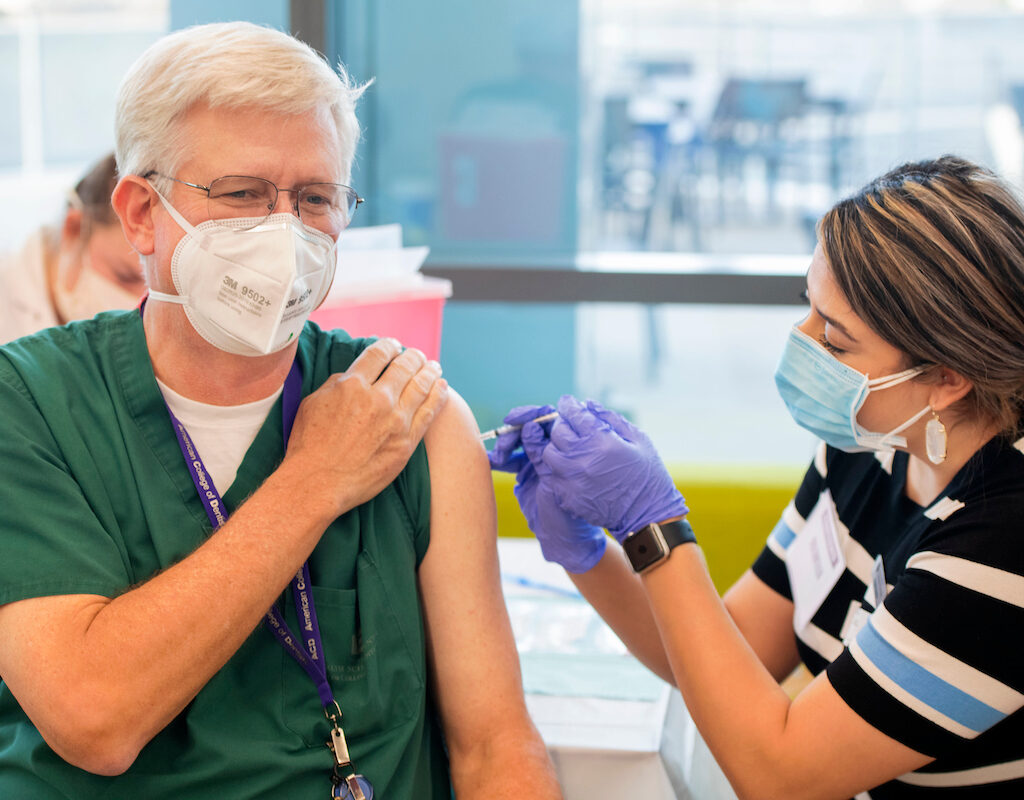Agrilife Extension Resources
We have a variety of resources on topics related to aging and caregiving for the elderly. Curated for all Texans, whether adult children, aging parents and current and former members of the military, our science-backed resources will help aging Texans remain active and vibrant parts of their community.
Related Departments: Nutrition

- Course
Intentionality is one of the hallmarks of a high-quality learning program. This involves not only using a curriculum that aligns with child development and guidelines, but also ensuring instruction is targeted to the needs of each child in your classroom.
This 4-hour course for early learning educators discusses how to use the cycle of curriculum learning to plan whole group, small group, and individual level to appropriately meet the needs of all learners. - Course
Knowing what children can do and what they know is powerful information that can guide early learning teachers to create appropriate learning experiences for their children. The purposes and types of assessments are examined.
This 4-hour course for early learning educators is designed to review the purposes of assessment, how to evaluate and interpret the results, and create a plan to share results with families. - Course
Collaboration is an integrated part of how we build successful relationships, make connections, create support systems, and involve the community in the field of early childhood. Professionalism plays a critical role in how early childhood educators foster their collaborative efforts. Learning how to collaborate creatively and effectively is essential to being an early childhood professional.
After completing this 3-hour course, the participants will be able to explain what collaboration is, describe elements of professionalism, and list ways to collaborate in the early childhood profession. - Course
Engaging families to become involved in their child’s early care and education sets the foundation for that involvement to continue throughout the child’s schooling. Helping families understand the importance of this involvement is critical. Families may not always understand how important they are in the education process, from early care onwards.
In this two-hour course, the learner will describe strategies for conducting orientations, holding formal meetings with families, discussing ways to support child development at home, encouraging parent involvement, and determining community resources available to help families and their children. - Course
Math is FUN! It is one of the few times you can see the wheels turning as children engage in the exploration of number and number operations, geometry and spatial sense, classification, and pattern skills! Learning happens right before your eyes!
- Course
Supporting the development of language skills is a crucial undertaking for all early childhood teachers. Language is the foundation for verbal language to occur and can be developed throughout every minute of the day!
In this 4-hour course, the learner will be able to explain strategies to use in the classroom to support children’s language development, describe how to create a language-rich environment and how this supports children’s growth and development, and explain how dual language learners are supported through ECE best practices and why this support is essential. - Course
Each of us comes from a unique place in the world. No one else has shared the same experiences in the same way. These unique experiences and where we come from have an impact on how we teach and how we interact with our children. It is critical to be aware of how these experiences impact us. Awareness of its influence and ensuring we are providing opportunities for children to gain a positive sense of self and pro-social skill development is crucial.
After completing this 2.5-hour course, the learner will be able to describe the importance of adults modeling prosocial behaviors, describe the importance of self-esteem and self-regulation, and explain the impact of our cultural identity on our actions and interactions. - Course
In an early childhood setting, children should be surrounded by print and, through interactions with the teachers, begin to attach meaning to that print. Their name is usually the most important word a child begins to recognize and try to write. Open this exciting world for your children as you interact with them with print.
After completing this 4-hour course, the learner will be able to describe how to create a literacy-rich environment and how this environment supports children’s growth and development, explain strategies to strengthen vocabulary development, and examine critical components for fostering children’s reading and writing development. - Course
Creating healthy habits is a critical element of quality early childhood programs. This course reviews practices that promote physical activity in young children. It is aligned with Texas Healthy Building Blocks recognition criteria and was developed with support from the Texas Department of State Health Services.
- Course
One of the most challenging aspects of child care is deciding upon a style of discipline that is appropriate, effective, and in the best interest of each child. Students will learn about the strengths and weaknesses of various disciplinary styles and explore strategies for setting and enforcing healthy limits.